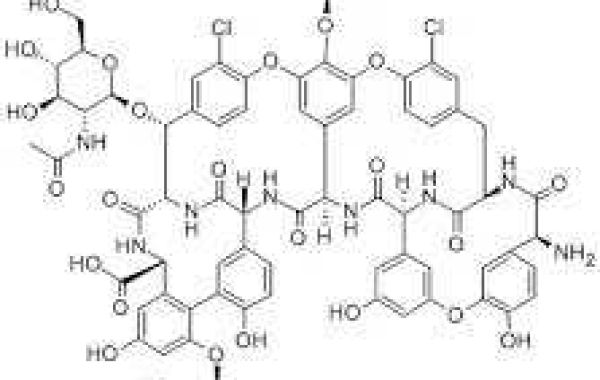Ticoranin, also known as swithin, was first discovered in 1975. It is a vancomycin family glycopeptide antibiotic obtained by fermentation and extraction of specific mobile actinomycetes, and is a mixture of antibiotics composed of several compounds with very similar chemical structures. Teicoplanin is a new glycopeptide antibiotic similar to vancomycin, and its antibacterial spectrum and antibacterial activity are similar to vancomycin. It is more potent than vancomycin against Staphylococcus aureus and has fewer adverse effects. It is sensitive to Gram-positive bacteria such as Staphylococcus, Streptococcus, Enterococcus and most anaerobic-positive bacteria. It is mainly used clinically for serious infections caused by sensitive bacteria such as Staphylococcus aureus and Streptococcus spp. such as endocarditis, osteomyelitis, sepsis and infections of respiratory tract, urinary tract, skin and soft tissue. The main clinical use is ticoranine for injection, produced by Sanofi Aventis (trade name Targus), and generic versions are also available in China.
1. Pharmacological effects
(1) Treatment: for staphylococcal infections that cannot be treated by penicillin and cephalosporin antibiotics or are ineffective and resistant to other antibiotics.
(2) Sensitive bacteria: Staphylococcus aureus, coagulase-negative staphylococcus, streptococcus, enterococcus, coryneform bacteria, Clostridium difficile, peptostreptococcus, etc.
(3) Infection: For skin, soft tissue, urinary tract, respiratory tract, bone and joint infection, sepsis, endocarditis and peritonitis related to continuous ambulatory peritoneal dialysis.
(4) Prevention: When there are high-risk factors for Gram-positive bacterial infection in orthopedic surgery; alternative therapy is used as a substitute for vancomycin and metronidazole.
2. Mechanism of action
The mechanism of action of teicoplanin is to inhibit the synthesis of cell wall and interfere with the synthesis of peptidoglycan. . -Alanine, thereby preventing the synthesis of bacterial cell wall membrane, thereby inhibiting and killing bacteria.
Teicoplanin Suppliers - Minbiotch
Shanghai Minbiotch Co., Ltd. is a company specializing in the RD and production of advanced pharmaceutical intermediates and biological raw materials. Committed to providing a variety of high-end generic drugs and innovative drugs. Manufacture and sell Teicoplanin, welcome to visit our website or contact us.
Teicoplanin related products








